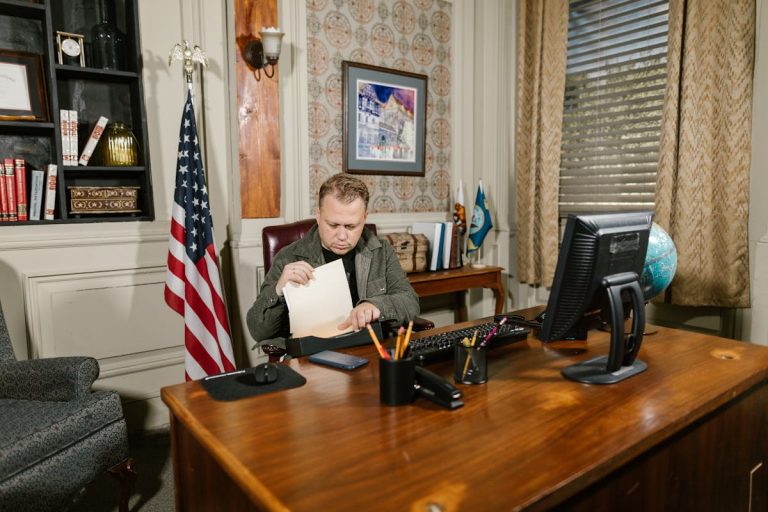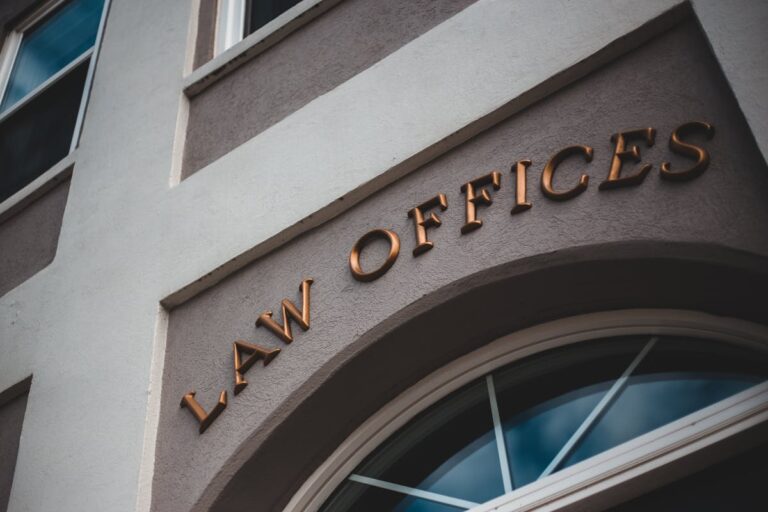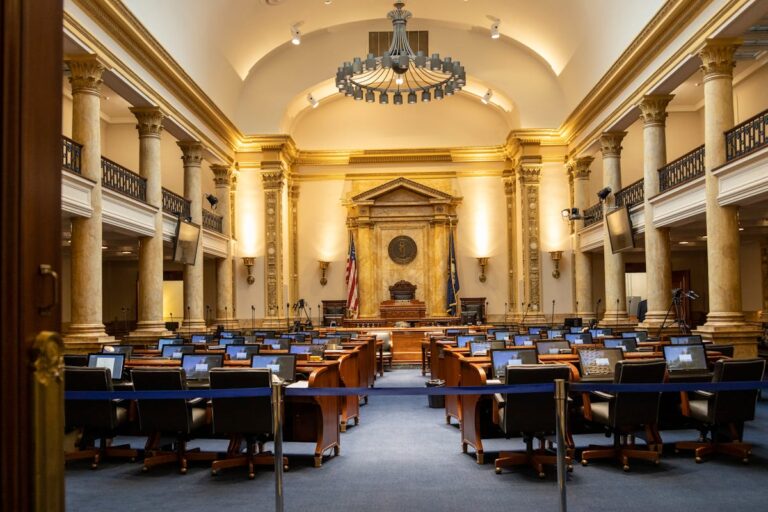Are Whistleblower Protections Adequate for Missouri Employees Reporting Wrongdoings?
The efficacy of whistleblower protections for Missouri employees who report misconduct is a topic warranting further exploration. Despite the Missouri Whistleblower Protection Act being in place, employees still face potential risks such as job loss and emotional distress. The intricacies of legal loopholes and ambiguities can stifle the process of reporting, while the fear of adverse consequences often dissuades potential whistleblowers. Are these protective measures truly sufficient, or is there a need for more robust legislative reform, increased public awareness, and thorough training initiatives?
Understanding Whistleblower Protections
One must recognize the importance of whistleblower protections in fostering a trustworthy and accountable working environment. These protections, which include the fundamental principle of whistleblower anonymity, play a significant role in encouraging employees to report wrongdoing without the fear of retaliation.
Whistleblower anonymity is a cornerstone of these protections. It guarantees that employees who expose misconduct can do so without fear of personal or professional reprisal. This is vital to fostering an environment where employees feel safe to report malfeasance, thereby promoting transparency and integrity within the organization.
Reporting channels also play an important role in whistleblower protections. These channels, which can include hotlines, email systems, or dedicated personnel, provide a clear, secure path for employees to voice their concerns. The existence of reporting channels underpins the efficacy of the entire whistleblower system, as accessibility and trust in these channels directly impact the willingness of employees to report improprieties.
Missouri’s Whistleblower Laws
In the domain of Missouri’s legal framework, whistleblower protections are governed by specific laws designed to safeguard individuals who disclose unethical or illegal activities. Such laws are essential to ensuring transparency and accountability in both public and private sectors. However, the effectiveness of these protections is contingent upon the willingness of potential whistleblowers to come forward, a decision often influenced by whistleblower incentives and the accessibility of reporting channels.
Missouri’s whistleblower laws, such as the Missouri Whistleblower Protection Act, provide whistleblower incentives including protection against retaliation, job reinstatement, and compensation for lost wages and benefits. These incentives are significant in encouraging potential whistleblowers to report wrongdoings without fear of reprisals.
Reporting channels are also a key component of the state’s whistleblower laws. They provide a clear, confidential pathway for employees to report unethical or illegal behaviors. These channels offer a secure and anonymous avenue for potential whistleblowers, assuring them of the confidentiality of their identity and the information disclosed.
Notable Missouri Whistleblower Cases
In the context of whistleblower protections in Missouri, it is essential to examine prominent cases that have occurred within the state. These instances not only provide practical illustrations of how whistleblower laws have been applied but also offer insights into the implications of these cases. Additionally, an understanding of current protection measures, shaped in part by these cases, is instrumental in comprehending the legal landscape for whistleblowers in Missouri.
Famous Missouri Whistleblower Incidents
Several high-profile whistleblower cases have emerged from Missouri, reflecting the state’s commitment to upholding integrity and transparency. These cases have sparked public reactions, often leading to significant changes in policy and procedure.
One of the most famous cases involved the Kansas City School District in 2010. An anonymous employee exposed fraudulent practices in the district’s school lunch program. The public reaction was swift and vehement, leading to a thorough audit and eventual system overhaul.
In 2014, the Missouri Department of Corrections was under scrutiny when a whistleblower revealed a culture of harassment and discrimination within the department. The subsequent public outcry resulted in an extensive investigation and several key administrative changes.
Most recently, in 2017, a state trooper brought attention to issues of safety and misconduct within the Missouri Highway Patrol. Public reaction varied, with some praising the trooper’s bravery and others criticizing the disruption.
These famous cases demonstrate that Missouri whistleblower protections can and do work effectively. However, they also underscore the need for ongoing attention to these protections to guarantee that those who report wrongdoing can do so without fear of reprisal.
Implications of Whistleblowing Cases
Reflecting on the aforementioned cases, it becomes clear that the implications of whistleblowing in Missouri are far-reaching and often transformative. These cases underscore the significance of whistleblowing, not only in revealing corrupt practices but also in shaping workplace culture and norms.
The ethical implications of whistleblowing are profound and multifaceted:
- Whistleblowing reaffirms the importance of integrity and honesty in the corporate world. When employees take the brave step of reporting wrongdoings, they demonstrate a commitment to ethical behavior, which in turn can inspire others to act with similar courage and integrity.
- Whistleblowing can help create a culture of accountability in the workplace. By shedding light on unethical or illegal practices, whistleblowers can foster an environment where misconduct is less likely to be tolerated or ignored.
- Whistleblowing can lead to transformative changes in policies and procedures. As seen in some of the notable Missouri cases, the actions of whistleblowers can serve as catalysts for legislative changes, leading to stronger protections and regulations in the workplace.
In essence, the act of whistleblowing can be a powerful tool in promoting ethical conduct, enhancing workplace culture, and driving institutional change.

Current Whistleblower Protection Measures
A significant number of whistleblower cases in Missouri have brought to light the importance of robust protection measures for individuals who dare to expose wrongdoing. The state has implemented several whistleblower protection measures, designed to encourage individuals to come forward without fear of retribution.
These measures offer provisions for whistleblower anonymity, attempting to shield individuals from negative repercussions. This anonymity is viewed as a vital factor in facilitating the reporting of illicit activities, as whistleblowers are often deterred by fear of retaliation. Yet, while this measure is a step in the right direction, effectiveness can be hindered if the anonymity provision is not strictly enforced.
Moreover, the state has put in place reporting mechanisms to streamline the process of lodging complaints. These mechanisms usually include hotlines, email systems, and dedicated personnel. However, the efficiency and effectiveness of these mechanisms are contingent upon their proper functioning and the competence of the assigned personnel.
In analyzing these measures, there is a clear objective to provide protection for whistleblowers. However, the adequacy of these protections remains an open question. It is essential to guarantee that these measures are not just in place but are robustly implemented and upheld.
Comparing Federal and State Protections
While there are significant overlaps, it is crucial to understand the distinctions between federal and state whistleblower protections in Missouri. These protections are distinct but complementary, providing a thorough shield to those who expose wrongdoing.
- Federal protections: Implemented through a variety of laws, including the Whistleblower Protection Act of 1989, these protections are extensive and apply nationwide. They protect those who disclose illegal activities, gross mismanagement, waste of funds, abuse of authority, and substantial and specific dangers to public health or safety.
- State comparisons: Missouri’s whistleblower protections are more localized and specific. The Missouri Whistleblower Protection Act safeguards employees who report illegal acts of their employers, refuse to carry out illegal activities, or participate in investigations into these activities.
- Intersection: Despite these differences, there are areas of overlap. Both federal and state protections aim to shield whistleblowers from retaliation, guarantee their anonymity, and provide avenues for redress.
Challenges Faced by Whistleblowers
Whistleblowers, despite the protections in place, often encounter significant hurdles. The risk of retaliation from employers is a prevalent issue, which includes job termination, harassment, and other adverse employment actions. Additionally, the limitations of legal protections, at both state and federal levels, can leave whistleblowers vulnerable, underscoring the complexity and challenges of their position.
Retaliation Risk
Notably, the risk of retaliation stands as one of the most formidable challenges faced by whistleblowers in Missouri. Upon exposing misconduct or illegal activity within an organization, these individuals often face severe retaliation tactics. These strategies can span from subtle exclusion to overt actions such as demotion, harassment, or even termination.
Employee fears are not unfounded. Retaliation can have far-reaching impacts on a whistleblower’s career and personal life, leading to:
- Loss of job security: Retaliation often leads to job loss or demotion, resulting in financial instability.
- Psychological distress: The constant fear and stress can lead to severe mental health issues.
- Damage to personal relationships: The stigma associated with whistleblowing can strain personal and professional relationships.
The retaliation risk, consequently, poses a considerable deterrent to potential whistleblowers. It undermines the very essence of whistleblower protections, which are meant to encourage reporting of wrongdoings for the greater good. Missouri’s current protections need to address this risk robustly to guarantee that employees can safely expose misconduct without fear of damaging repercussions.
Legal Protection Limitations
Even with retaliation risks being a formidable concern, it is not the only hurdle that whistleblowers in Missouri grapple with. The legal protection limitations present another significant challenge.
Chief among these is the existence of legal loopholes. Whistleblower protection laws are often intricate, and the complex wording can sometimes provide employers with opportunities to exploit these gaps. For instance, there may be ambiguity in the specificity required for a disclosure to be protected, allowing employers to argue that a whistleblower’s report did not meet these criteria.
Moreover, enforcement issues exacerbate these limitations. The onus of proving retaliation often falls on the whistleblower, which can be a challenging task. This issue is compounded by the fact that legal recourse can be a long, costly process. The lack of swift, decisive enforcement creates a deterrent effect, discouraging potential whistleblowers from coming forward.
Enhancing Missouri’s Whistleblower Safeguards
The pursuit of enhanced whistleblower safeguards in Missouri is a critical endeavor, aimed at fostering safer environments for those seeking to expose wrongdoing in various sectors. Whistleblower training and legislative reforms are the backbone of this improvement strategy, ensuring that employees are aware of their rights and responsibilities, while also enhancing the legal structures that protect them.
Key areas of focus should include:
- Whistleblower Training: Increased investment in whistleblower training programs can equip employees with the knowledge and confidence to report malpractices. These initiatives can also help to create a culture where ethical conduct is prized and wrongdoing is promptly addressed.
- Legislative Reforms: Existing legislation may require bolstering to provide stronger protections for whistleblowers. This could involve the introduction of punitive actions against those who retaliate against whistleblowers, providing added deterrence against such actions.
- Public Awareness Campaigns: The public should be educated about the importance of whistleblowers in maintaining accountability and transparency. This can generate societal support for whistleblowers, which can deter potential threats.
Frequently Asked Questions
What Is the Process for a Missouri Employee to File a Whistleblower Complaint?
A Missouri employee can file a whistleblower complaint by following established reporting procedures, which typically include documenting the wrongdoing, ensuring whistleblower anonymity, and submitting the complaint to the appropriate agency or regulatory authority.
Are There Specific Industries in Missouri Where Whistleblower Reports Are More Common?
Whistleblower reports are significantly frequent in specific industries in Missouri, particularly healthcare, due to instances of fraud, and environmental sectors, owing to potential regulatory violations. Adequate protections make reporting these wrongdoings less intimidating for employees.
What Is the Average Settlement or Compensation for Whistleblowers in Missouri?
Exact figures for whistleblower settlements in Missouri are not publicly disclosed. However, compensation averages generally depend on the case’s nature and severity, potentially including job reinstatement, back pay, and damages for emotional distress or reputational harm.
What Legal Support or Resources Are Available for Potential Whistleblowers in Missouri?
In Missouri, potential whistleblowers have access to several legal aid resources. These include confidential advocacy services, lawyers specializing in whistleblower cases, and online platforms providing information about legal rights and procedures for reporting workplace wrongdoings.
How Do Whistleblower Protections in Missouri Compare to Those in Neighboring States?
Whistleblower rights in Missouri are fairly robust, but when compared to neighboring states, there are disparities. Some nearby states offer broader protections, making Missouri’s protections adequate, but not necessarily extensive in a regional context.






